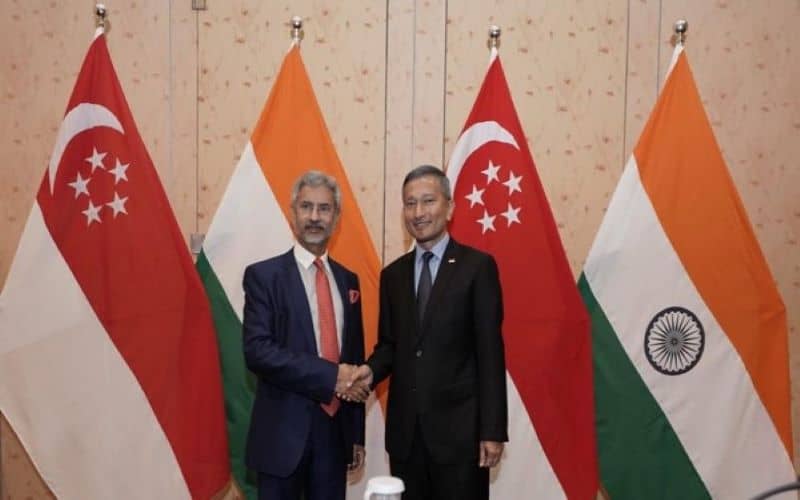Singapore: India and Singapore have witnessed rapid growth in their business relations in recent years.
Singapore was India’s largest source of Foreign Direct Investment (FDI) in the last fiscal year, which ended in March 2019, with USD 16.2 billion committed by the island republic. In the other direction, 20 percent of all business investments flowing out from India came to Singapore. Among foreign companies with a presence in the Lion City, Indian companies form the largest number, with some 9,000 firms having set-up offices here.
Indians make up the third-largest group of visitors to the Island state and growing at a rate of close to 15 percent annually. This is aided by 500 flights connecting some 18 Indian cities and Singapore every week.
With an eye to cementing this growing relationship, the High Commission of India, in partnership with agencies of the Governments of India and Singapore, chambers of commerce and professional associations organised the “India-Singapore: The Next Phase” Business Summit at the downtown Marina Bay Sands Expo and Convention Centre last week.
In attendance were India’s External Affairs Minister S Jaishankar and Minister of State for Housing, Urban Affairs, Civil Aviation and Commerce and Industry, Hardeep Singh Puri.
In his opening address, Singapore’s Foreign Affairs Minister, Vivian Balakrishnan noted India’s ambition to double its current GDP to USD 5 trillion by 2024 and infrastructure budget over the next 5 years of USD 13.9 billion. He believed that Singapore can be a useful partner in its bold plans to grow in areas of infrastructure planning, water conservation and business expansion.
“We believe we are a natural partner as India urbanises. Our expertise in urban development, planning, and infrastructure finance will be salient to India,” said Balakrishnan.
He added that Singapore has significant experience in planning and developing its scarce water resources, which will be relevant to India in the light of Prime Minister Narendra Modi’s recent emphasis on water conservation.
In addition, Singapore can be India’s gateway to the USD 2.8 trillion ASEAN economic community.
“We can collaborate with your government agencies and your companies to pilot digital platforms that will facilitate ease of doing business. We have a diverse population and we have the support structures to help you develop, trial, and adapt digital solutions both in ASEAN and in India.”
India’s concerns about joining the Regional Comprehensive Economic Partnership (RCEP) was also brought to the fore in the dialogue. Minister Jaishankar expressed concerns that it will increase India’s trade deficit with other countries in the treaty and in particular, China. India is also pitching for better and fairer access to the services sector in participating countries whereas the agreement in its current form focuses on goods.
The RCEP is a free trade agreement championed by the 10 ASEAN states currently under negotiation which covers 40 percent of world trade, and includes India, China, Japan, South Korea, Australia and New Zealand.
Singapore’s Senior Minister of State for Trade and Industry and Education, Chee Hong Tat said on the second day of the conference: “We want India to be part of RCEP. Besides the economic benefits, we believe this will further strengthen the links between India and ASEAN, which is important for having a balance of power that promotes peace and stability in this region.”
Chee further noted that the two nations worked well together because they had complementary strengths.
The second day of the conference focused on finance, infrastructure development and macro-economics.
Hardeep Singh Puri spoke about Singapore being a major partner for India in every area of priority in the second term of the Modi government – smart cities, aviation, skills development, amongst others.
He further commented, “as we embark on the next phase of this government, we look to the future with higher ambitions and new opportunities for India and the world to work together. Singapore will be among our foremost partners. For India, Singapore has been over the past three decades the political, economic and intellectual bridge to Southeast Asia. And it remains an important gateway to the world for a globalising India.”
Puri chipped in with regards to the RCEP by saying that India shared ASEAN’s strategic and economic vision for RCEP and wanted to see a comprehensive, fair, and balanced agreement.
“The choice we will make will finally depend on our balance of economic and strategic interests that we see coming out of the negotiations,” he said.

